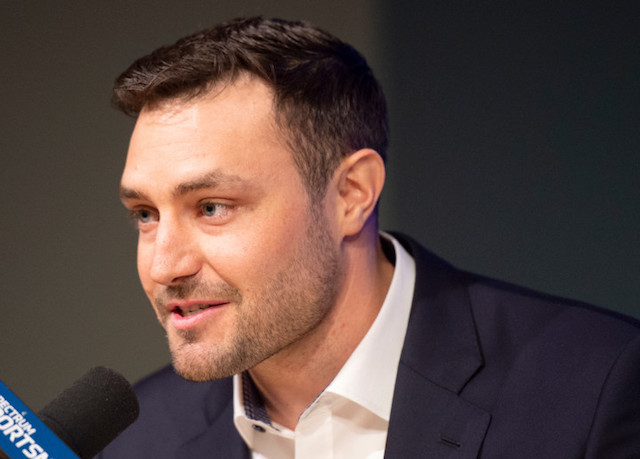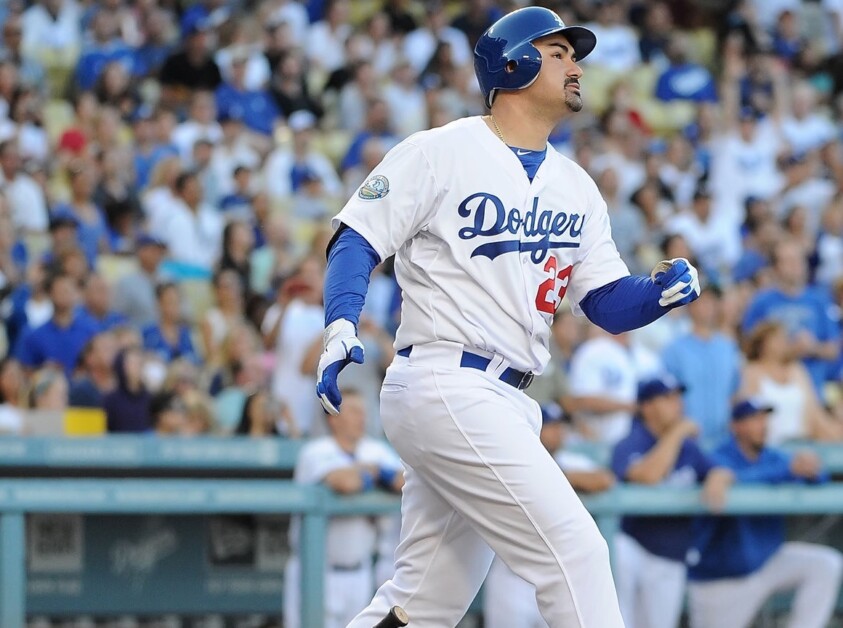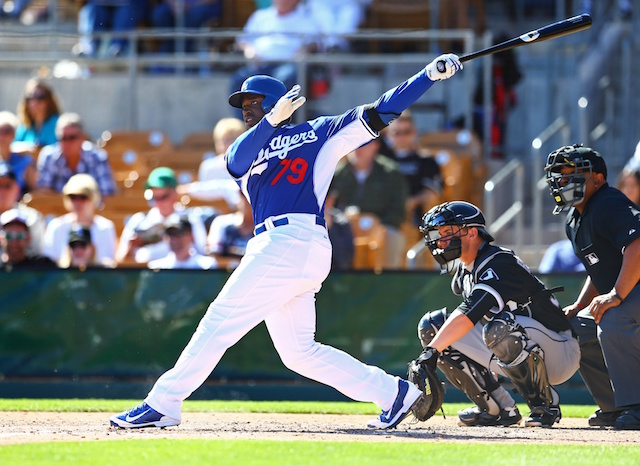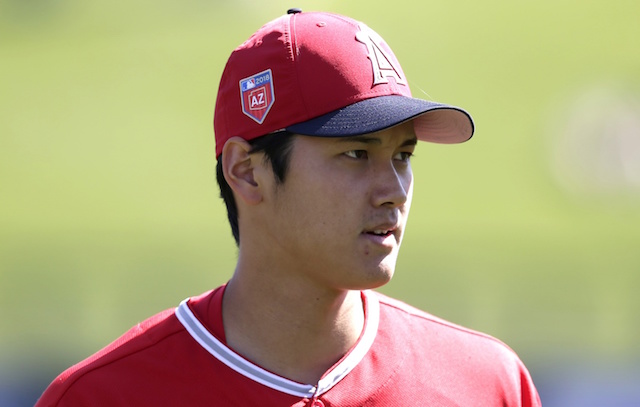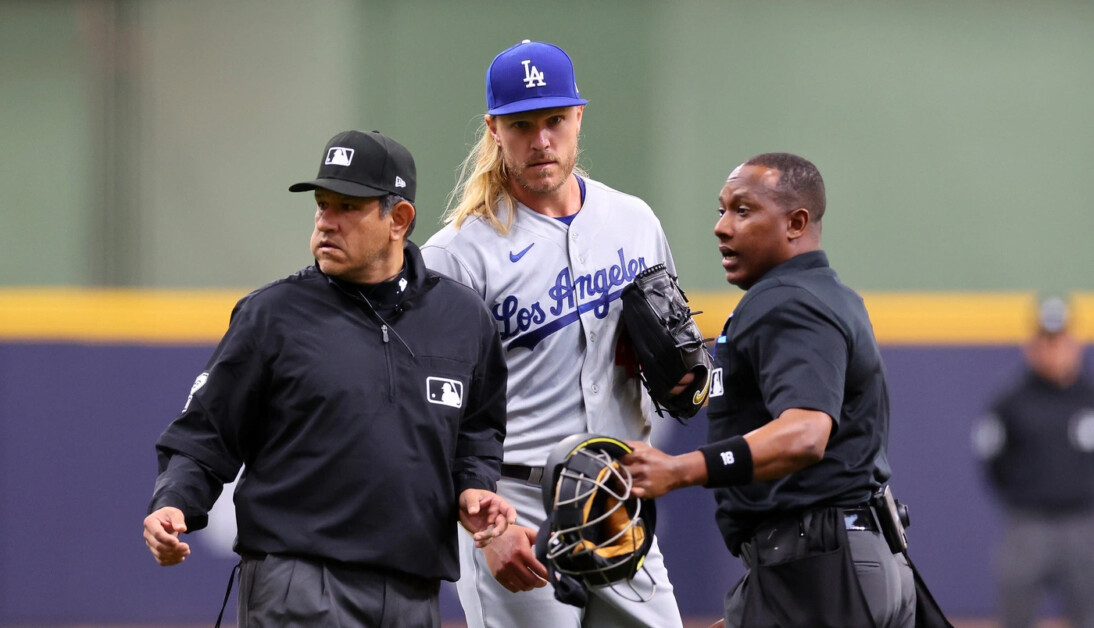Confusion? Anger? Disappointment? There were a slew of reactions when the Los Angeles Dodgers announced the signing of A.J. Pollock to a five-year contract that can reach $60 million in value.
Regardless of how the Pollock signing was described, the sense was all the same This wasn’t ideal.
Whether it was the “this guy is worse than Yasiel Puig” camp or the “he’s always injured” camp, the outrage was palpable. In fact, yours truly even explained why if Bryce Harper wasn’t an option, then the Dodgers should avoid signing an outfielder altogether (whoops).
Regardless, reality is reality Pollock is part of the team. So rather than be angry, let’s explore the question of why the Dodgers did this.
As it stands, the Dodgers have a plethora of outfielders: Alex Verdugo, Joc Pederson, Pollock and Andrew Toles are of the full-time variety. And on top of that group you’ve got Cody Bellinger, Kiké Hernandez and Chris Taylor of the utility-man variety.
At the moment, Hernandez and Taylor figure to see most of their time at second base. Meanwhile, signs point to Bellinger manning right field on a regular basis.
So, again: Why sign Pollock?
There are simple, surface-level answers: he’s right handed, a great defender, etc. But the real compelling answers lie a bit deeper.
For most, the knock against Pollock is his health. Over the last three seasons, he has missed almost 250 games with three different injuries. And the Dodgers really just signed up for four, maybe five years. Why?
The answer lies in a philosophy the team has been working with for the past few years, and one I fundamentally agree with. Rather than building around a small handful of superstars, the Dodgers have opted to build their roster with an emphasis on depth.
It’s why the team was able to reach the World Series last season despite their best player (Corey Seager) playing in just 26 games.
Because their roster is so deep, it allows them to take chances on high-ceiling, high-risk players like Pollock — and I think that people are ignoring this.
The bulk of complaints about Pollock have lied with comparisons to Puig. Most arguments looked something like:
We’re paying $12 million a year for some whose WAR over the past three season (5.2) was worse than Puig’s (5.7). Plus he’s older, less exciting, etc.
At the center of those argument was the idea that Pollock is a worse player than Puig. And on the surface it looks like that’s true. But hidden within that argument is a hole that is the key to understanding the Dodgers’ entire strategy.
Over the past three seasons, Puig played in 381 games, while Pollock has played in just 237.
But here’s the thing about WAR: It’s a cumulative stat. Meaning, Puig playing more games means he’s had 50 percent more opportunities to accumulate “wins.” And yet, in real life, if Pollock were to miss games, he wouldn’t be replaced by emptiness — but by whoever his backup is.
If the secondary option is terrible, that’s bad news for the Dodgers. But if Pollock’s backup is totally serviceable, it changes everything.
In reality, the comparison shouldn’t be “Puig’s WAR over 381 games” versus “Pollock’s WAR over 237 games,” but rather “Puig’s War” against “Pollock’s WAR plus said “Backup player’s WAR.”
And that’s where the Dodgers’ depth comes in.
Let’s say Pollock misses 50 games again this season. Those would be filled by someone like Toles, Pederson or perhaps even Bellinger.
In his career, Toles has accumulated 1.8 WAR in 96 games, so we’ll assume in 50 games he’d give something around 0.9 WAR (this number would be even higher if we used Hernandez or Taylor).
Last season, Pollock accumulated 2.5 WAR in just 113 games and so if we add in 0.9 WAR for Toles, it would total 3.4 WAR over the course of 162 games.
It’s worth pointing out that the Dodgers are banking on Pollock being better than he was last year and are hoping that he plays more than 112 games this season. But for the sake of argument we’ll assume neither happens.
Even if we go back to 2017 to get Puig’s best season as a pro since his rookie year, he posted a 2.9 WAR in 152 games. For the sake of fairness, let’s round that up to 3.0 in order to account for the 10 missed games — but even then the gap between Pollock plus Toles and Puig is relatively substantial.
The team’s philosophy goes one step further. It’s the correct philosophy for building a championship team as well, and here’s why:
While the regular season is a marathon, the postseason is a sprint. The type of thinking that wins regular season games is radically different than the type that wins in the postseason. The Dodgers’ philosophy actually lends itself well to competing for championships.
In a World Series, the best players are going to get somewhere between 25 to 30 at-bats. The entire season and legacy of a team comes down to a sample size that is roughly six percent of the regular season’s. It’s honestly remarkable.
Now, if you were building a team with that in mind, which would you prefer? A player who has better career health and who is an accumulator of statistics (meaning his numbers look better simply because he plays more often), or a higher-ceiling player with a greater health risk?
The answer, I believe, is the higher-ceiling option. I’d rather have a chance at 2 to 30 elite at-bats than the same number of above-average trips to the plate.
That’s arguably why the Dodgers have targeted players such as Pollock, because they believe their depth can make up for the health risks.
To use another example, it can be reasoned this line of thinking led to re-signing Rich Hill. The Dodgers know Hill isn’t going to get them 200 innings every season (he has about 270 total between the last two seasons). But what they do know is that when Hill is on the mound, they’re going to get high-level innings innings from him.
In the last two postseasons, Hill has made seven starts (34.1 innings) with 41 strikeouts and just nine earned runs (2.36 ERA). If given the choice between that and someone who’s going to give you an extra 70 regular-season innings, which would you prefer?
The Dodgers have firmly planted themselves on one side of that debate, and, like it or not, that side has brought you A.J. Pollock.





